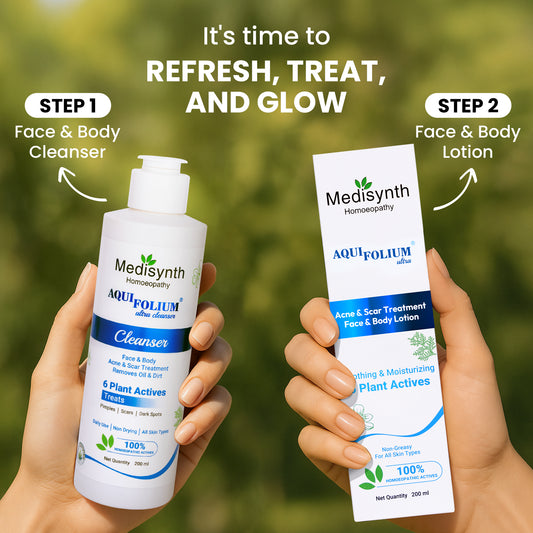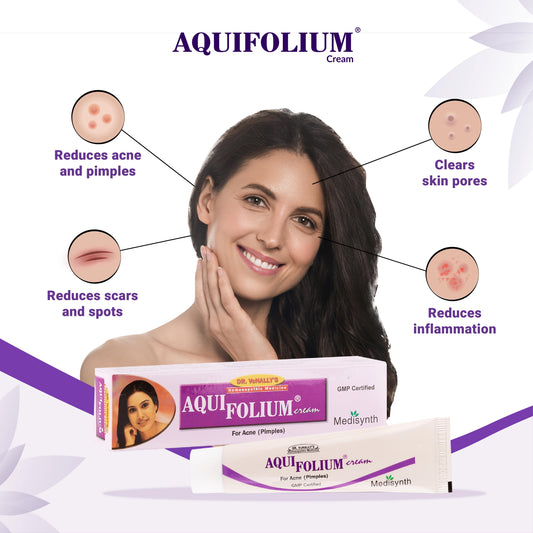Best Homeopathic Remedies and Medicine for Psoriasis

Psoriasis is a chronic autoimmune condition characterized by red, scaly patches on the skin, and it affects millions worldwide, causing not only physical discomfort but also emotional distress. While conventional treatments exist, they provide relief for a short amount of time or only for the time when you take medication. This is the reason why many people seek alternative remedies that are gentle yet effective. Among these alternatives, homeopathy stands out as a promising avenue for managing psoriasis symptoms. Homeopathy, with its principles rooted in the belief that "like cures like" and the use of medicine in potentised form, offers a holistic approach to healing. By addressing the underlying imbalances in the body's vital force, homoeopathic remedies aim to stimulate the body's natural healing processes. In the case of psoriasis, these remedies target not just the skin manifestations but also the internal factors contributing to the condition.
Understanding Psoriasis: Causes and Symptoms
Psoriasis is a chronic autoimmune condition that primarily affects the skin, causing cells to multiply too quickly. This leads to the formation of thick, scaly patches that can appear anywhere on the body, though they are most commonly found on the scalp, elbows, and knees. While psoriasis is not contagious, it can have a significant impact on an individual's quality of life. Understanding its causes and symptoms is key to managing the condition.
Causes of Psoriasis
The exact cause of psoriasis is not fully understood, but it is believed to result from a combination of genetic and environmental factors.
-
Genetic Factors: Psoriasis tends to run in families, suggesting a genetic predisposition. Certain genes, such as those related to the immune system, have been linked to the condition. If a person has a family member with psoriasis, their chances of developing the disease are higher.
-
Immune System Dysfunction: Psoriasis is considered an autoimmune disease. The immune system mistakenly attacks healthy skin cells, leading to inflammation and the rapid turnover of skin cells. Normally, skin cells grow and shed gradually, but in psoriasis, this process is accelerated, causing the skin cells to build up on the surface, forming plaques.
-
Triggers: Environmental factors can trigger or worsen psoriasis, including:
-
Infections: Particularly throat infections (like strep throat), which can trigger guttate psoriasis in some people.
-
Stress: Emotional or physical stress can lead to flare-ups.
-
Skin injuries: Cuts, scrapes, sunburn, or insect bites may trigger a new psoriasis outbreak in a process known as the Koebner phenomenon.
-
Medications: Certain drugs, including lithium, beta-blockers, and antimalarial drugs, may trigger or exacerbate psoriasis.
-
Lifestyle Factors: Smoking, heavy alcohol use, and obesity have been shown to increase the risk of developing psoriasis or worsening existing conditions.
Symptoms of Psoriasis
The severity and appearance of psoriasis can vary from person to person. Common symptoms include:
-
Red, Raised Patches of Skin: These patches, often covered with silvery scales, are the hallmark of psoriasis. They can appear anywhere on the body, but they are most common on the scalp, elbows, and knees.
-
Itching and Pain: Psoriasis patches can be itchy, painful, or tender to the touch. In severe cases, the skin may crack and bleed, which can be uncomfortable.
-
Dry, Cracked Skin: The affected areas may become dry, cracked, and prone to bleeding, particularly if the skin is irritated or scratched.
-
Thickened or Ridged Nails: Psoriasis can affect the nails, causing them to become thickened, discolored, or pitted. In some cases, the nails may separate from the nail bed (onycholysis).
-
Scalp Psoriasis: Psoriasis on the scalp can lead to dandruff-like flakes or thicker, scaly patches that may cause hair loss in severe cases.
-
Pustular Psoriasis: This rare form of psoriasis is characterized by white pustules (blisters of noninfectious pus) surrounded by red skin. It can appear on the hands and feet and is often associated with fever or chills.
-
Psoriatic Arthritis: About 30% of people with psoriasis also develop psoriatic arthritis, a condition that causes joint pain, swelling, and stiffness, particularly in the fingers, toes, and spine.
Types of Psoriasis
There are several types of psoriasis, each with its own distinct characteristics:
-
Plaque Psoriasis: The most common type, characterized by red, scaly patches.
-
Guttate Psoriasis: Small, drop-shaped patches that often develop after a bacterial infection.
-
Inverse Psoriasis: Bright red, shiny lesions that appear in skin folds (e.g., armpits, groin, under the breasts).
-
Pustular Psoriasis: Characterized by pus-filled blisters.
-
Erythrodermic Psoriasis: A rare and severe form that causes widespread redness, shedding of the skin, and potential complications like dehydration and infection.
The Role of Homoeopathy in Psoriasis Treatment
Psoriasis, as we mentioned earlier, is a chronic autoimmune condition affecting the skin and often the joints which can be a challenging condition to manage. While conventional treatments such as topical creams, phototherapy, and systemic medications exist, many people want alternative approaches that are gentle, holistic, and free from harsh side effects. Enter homoeopathy, a system of medicine that utilizes potentised forms of natural substances to stimulate the body's innate healing processes. Homoeopathy operates on the principle of "like cures like," where a substance that causes symptoms in a healthy person is potentised and administered to a person exhibiting similar symptoms, thereby triggering the body's self-healing mechanisms. In this article, we explore the role of homoeopathy in the treatment of psoriasis and its potential benefits for those living with this condition. In homoeopathy, the approach to treating psoriasis is holistic, focusing not just on alleviating the outward symptoms but also on addressing the underlying imbalances within the body. Homoeopathic remedies are tailored to each individual based on their unique symptom profile, medical history, and emotional state. By stimulating the body's vital force, homoeopathy aims to restore harmony and balance, leading to improvements in skin health and overall well-being.
Common Homeopathic Remedies and Medicine for Psoriasis
Soriafit Cream
As we mentioned earlier, Psoriasis can be treated by taking a holistic approach with the help of homoeopathy and the best homoeopathic treatment for psoriasis that we can recommend is from Medisynth is Soriafit Cream which is the best treatment for Psoriasis.
It is worth noting that Soriafit Cream from Medisynth helps in treating Psoriasis in both acute and chronic conditions. Medisynth’s Soriafit Cream contains natural homoeopathic ingredients known to have benefits for Psoriasis treatment such as Calendula Officinalis, Echinacea Angustifolia, Hamamelis Virginica, and Thuja Occidentalis.
These are the benefits of the ingredients present in Soriafit Cream from Medisynth:
-
Calendula Officinalis: It is valued for its soothing effects on irritated skin. Its anti-inflammatory properties help reduce redness, swelling, and itching associated with psoriatic plaques. Remarkable healing agent hence helps in the healing process.
-
Echinacea Angustifolia: Used to treat acute autoinfection. Prevents recurrence.
-
Hamamelis Virginica: Its astringent properties help tighten the skin and helps to reduce soreness, alleviating discomfort due to psoriasis & helps to reduce bleeding occurs after scratching
-
Thuja Occidentalis: It has a specific antibacterial action that helps treat recurring skin problems.
Conclusion
In conclusion, Psoriasis is an auto-immune condition and it is known to affect every person once in their lifetime. Having said that, the reason why Psoriasis occurs is not known yet and research is being conducted even now as well. While homoeopathy may not offer a quick fix for psoriasis like allopathy, its gentle yet profound approach to healing has the potential to bring relief and improve quality of life for those living with this chronic condition. As with any form of treatment, it's essential to consult a qualified homoeopathic practitioner for personalized guidance and care. With patience, perseverance, and a holistic approach to health, individuals can harness the power of homoeopathy in their journey towards clearer, healthier skin.It is also worth noting that Homoeopathy can be used as a standalone treatment for psoriasis or integrated with conventional therapies for enhanced effectiveness.









